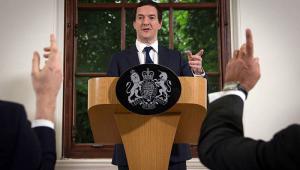In a series of votes yesterday evening, peers refused to back the statutory instrument that would have introduced the cuts to tax credits set out by the chancellor in his summer Budget. The controversial plans called for a cut in the level of earnings at which tax credits would start to be withdrawn, from £6,420 to £3,850 in 2016/17, raising concerns that poorer households would lose out.
The government attempted to introduce the changes through secondary legislation, meaning they were subject to a vote by the House of Lords, which would not have been the case if the changes had been part of a finance bill.
Peers passed two amendments yesterday. One called for the government to publish a report on the impact of the reductions while considering possible mitigating action, while a second stated the house would not pass the measures until the government had set out “full transitional protection for a minimum of three years for all low income families and individuals currently receiving tax credits before 5 April 2016”.
Following the vote, Osborne said there may be changes to the proposals in next month’s Autumn Statement.
“I have said I would listen and that’s precisely what I intend to do,” he told the BBC. “I believe we can achieve the same goal of reforming tax credits, saving the money we need to save to secure our economy, while at the same time helping in the transition. That is what I intend to do in the Autumn Statement. I'm determined to deliver that lower welfare economy the British people want to see.”
The tax credit cuts are forecast to save around £9.7bn by 2020/21 as part of the government’s drive to save £12bn from welfare spending in order to reach a surplus in public spending.
The vote came after an analysis by the Policy in Practice think-tank, which found that two-thirds of working tax credit recipients can expect to be worse off in 2020, even after the introduction of the national living wage, and that owner-occupiers will be among the hardest hit when the reforms are first implemented, as they will not be eligible for any increase in housing benefit as a result of the changes. The analysis also warned that the cuts to tax credits could increase the entitlement to locally-set council tax support schemes.
Responding to the votes in the Lords, shadow chancellor John McDonnell said the government had suffered “a huge blow”.
“The chancellor needs to understand that cutting on average £1,300 a year from over 3 million working families is not a sensible plan, and people are waking up to what Labour has been warning on this for months,” McDonnell said. “George Osborne needs to now go away, and consider the only reasonable option open to him. If he U-turns fairly and in full on his tax credit cuts then I will support him on it, and so will the public. But if he continues down his path of tax cuts for the rich paid for by tax credit cuts for many hardworking families, then he will be putting the interests of his party before the interests of those working families who just want to pay their bills and get to the end of each month.”












